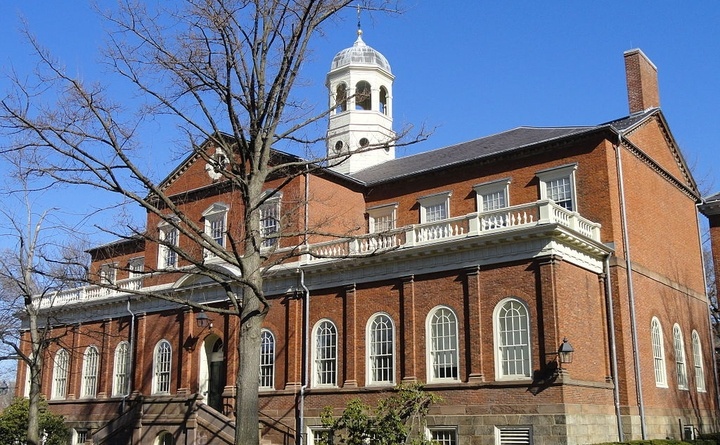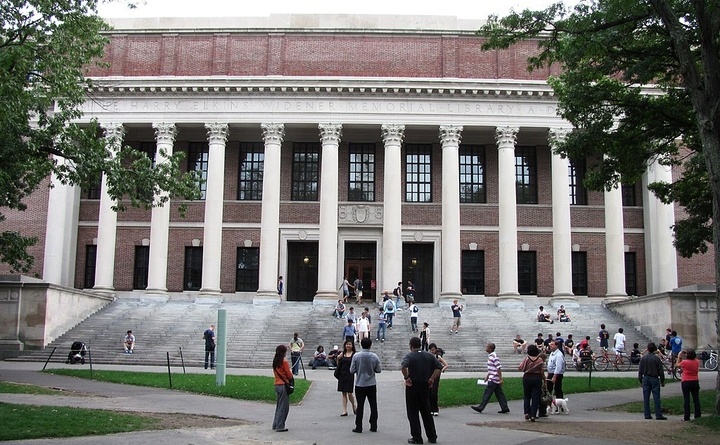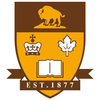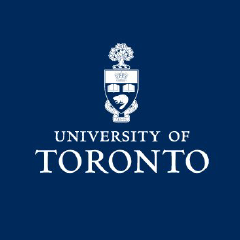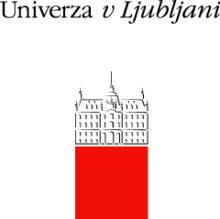Harvard University
Founded 1636.
Funding:
Private
Accreditation:
New England Association of Schools and Colleges
Grades 6
Languages 1
Divisions 15
- Harvard CollegeFields of study: Mathematics and Computer Science, Natural Sciences, Engineering, Social Sciences, Arts and Humanities
- Continuing Education Department/Division
- Arts and Sciences Faculty
- Arts and Sciences Graduate School
- Design Graduate School
- Education Graduate SchoolFields of study: Education
- Advanced Study Institute
- Business School
- Dental Medicine School
- Engineering and Applied Sciences School
- Harvard Kennedy School
- Law SchoolFields of study: Law
- Medical Sciences School
- Public Health SchoolFields of study: Public Health
Tuition fee per annum
Local currency: USD
$19,444.00 – $21,146.00
Requirements
- Admission details: Graduation from high school or equivalent, and College SAT or ACT examination. TOEFL test for foreign students. The University is very selective and accepts only 17.2 % of its applicants. Each applicant is evaluated individually
Short online courses 149
- 18th-Century Opera: Handel & Mozart
- 19th-Century Opera: Meyerbeer, Wagner, & Verdi
- Advanced Bioconductor
- American Government: Constitutional Foundations
- Ancient Masterpieces of World Literature
- Applications of TinyML
- Backyard Meteorology: The Science of Weather
- Bioethics: The Law, Medicine, and Ethics of Reproductive Technologies and Genetics
- Buddhism Through Its Scriptures
- CS50's Computer Science for Business Professionals
- CS50's Computer Science for Lawyers
- CS50's Introduction to Artificial Intelligence with Python
- CS50's Introduction to Computer Science
- CS50's Introduction to Game Development
- CS50's Introduction to Programming with Scratch
- CS50's Mobile App Development with React Native
- CS50's Understanding Technology
- CS50's Web Programming with Python and JavaScript
- Calculus Applied!
- Case Studies in Functional Genomics
- Causal Diagrams: Draw Your Assumptions Before Your Conclusions
- Cell Biology: Mitochondria
- Central Challenges of American National Security, Strategy, and the Press
- Child Protection: Children's Rights in Theory and Practice
- China Humanities: The Individual in Chinese Culture
- China and Communism
- ChinaX Book Club: Five Authors, Five Books, Five Views of China
- China’s First Empires and the Rise of Buddhism
- China’s Political and Intellectual Foundations: From Sage Kings to Confucius
- Christianity Through Its Scriptures
- CitiesX: The Past, Present and Future of Urban Life
- Citizen Politics in America: Public Opinion, Elections, Interest Groups, and the Media
- Contemporary China: The People's Republic, Taiwan, and Hong Kong
- Contract Law: From Trust to Promise to Contract
- Cosmopolitan Tang: Aristocratic Culture in China
- Creating Modern China: The Republican Period to the Present
- Data Science: Capstone
- Data Science: Inference and Modeling
- Data Science: Linear Regression
- Data Science: Machine Learning
- Data Science: Probability
- Data Science: Productivity Tools
- Data Science: R Basics
- Data Science: Visualization
- Data Science: Wrangling
- Deploying TinyML
- Early Childhood Development: Global Strategies for Implementation
- Early Christianity: The Letters of Paul
- Energy Within Environmental Constraints
- Entrepreneurship in Emerging Economies
- Exercising Leadership: Foundational Principles
- Fat Chance: Probability from the Ground Up
- First Nights - Beethoven's 9th Symphony and the 19th Century Orchestra
- First Nights - Berlioz’s Symphonie Fantastique and Program Music in the 19th Century
- First Nights - Handel's Messiah and Baroque Oratorio
- First Nights - Monteverdi’s L’Orfeo and the Birth of Opera
- First Nights - Stravinsky’s Rite of Spring: Modernism, Ballet, and Riots
- Food Fermentation: The Science of Cooking with Microbes
- Fundamentals of Neuroscience, Part 1: The Electrical Properties of the Neuron
- Fundamentals of Neuroscience, Part 2: Neurons and Networks
- Fundamentals of Neuroscience, Part 3: The Brain
- Fundamentals of TinyML
- Global China: From the Mongols to the Ming
- Global Health Case Studies from a Biosocial Perspective
- Health and Society
- High-Dimensional Data Analysis
- Hinduism Through Its Scriptures
- Human Anatomy: Musculoskeletal Cases
- Humanitarian Response to Conflict and Disaster
- Improving Global Health: Focusing on Quality and Safety
- Improving Your Business Through a Culture of Health
- Innovating in Health Care
- Introduction to American Civics: Presented by Zero-L
- Introduction to Bioconductor
- Introduction to Data Wise: A Collaborative Process to Improve Learning & Teaching
- Introduction to Digital Humanities
- Introduction to Family Engagement in Education
- Introduction to Linear Models and Matrix Algebra
- Introduction to Probability
- Invasions, Rebellions, and the Fall of Imperial China
- Islam Through Its Scriptures
- Japanese Books: From Manuscript to Print
- Judaism Through Its Scriptures
- JuryX: Deliberations for Social Change
- Justice
- Justice Today: Money, Markets, and Morals
- Leaders of Learning
- Lessons from Ebola: Preventing the Next Pandemic
- Literati China: Examinations, Neo-Confucianism, and Later Imperial China
- MalariaX: Defeating Malaria from the Genes to the Globe
- Masterpieces of World Literature
- Mechanical Ventilation for COVID-19
- Mechanical ventilation for COVID-19 patients
- Modern China’s Foundations: The Manchus and the Qing
- Modern Masterpieces of World Literature
- Poetry in America: Modernism
- Poetry in America: The Civil War and Its Aftermath
- Poetry in America: Whitman
- Practical Improvement Science in Health Care: A Roadmap for Getting Results
- PredictionX: John Snow and the Cholera Epidemic of 1854
- PredictionX: Lost Without Longitude
- PredictionX: Omens, Oracles & Prophecies
- Prescription Drug Regulation, Cost, and Access: Current Controversies in Context
- Principles of Biochemistry
- Principles, Statistical and Computational Tools for Reproducible Data Science
- Pyramids of Giza: Ancient Egyptian Art and Archaeology
- Quantitative Methods for Biology
- Readings in Global Health (2017)
- Religion, Conflict and Peace
- Religious Literacy: Traditions and Scriptures
- Remote Work Revolution for Everyone
- Rhetoric: The Art of Persuasive Writing and Public Speaking
- Saving Schools: Reforming the U.S. Education System
- Science & Cooking: From Haute Cuisine to Soft Matter Science (chemistry)
- Science & Cooking: From Haute Cuisine to Soft Matter Science (physics)
- Shakespeare's Hamlet: The Ghost
- Shakespeare's Life and Work
- Shakespeare's The Merchant of Venice: Shylock
- Shakespeare’s Othello: The Moor
- Sikhism Through Its Scriptures
- Statistical Inference and Modeling for High-throughput Experiments
- Statistics and R
- Strengthening Community Health Worker Programs
- Super-Earths and Life
- Tangible Things: Discovering History Through Artworks, Artifacts, Scientific Specimens, and the Stuff Around You
- Technology Entrepreneurship: Lab to Market
- The Ancient Greek Hero
- The Architectural Imagination
- The Book: Book Sleuthing: What 19th-Century Books Can Tell Us About the Rise of the Reading Public?
- The Book: Books in the Medieval Liturgy
- The Book: Making and Meaning in the Medieval Manuscript
- The Book: Monasteries, Schools, and Notaries, Part 1: Reading the Late Medieval Marseille Archive
- The Book: Monasteries, Schools, and Notaries, Part 2: Introduction to the Transitional Gothic Script
- The Book: Print and Manuscript in Western Europe, Asia and the Middle East (1450-1650)
- The Book: Scrolls in the Age of the Book
- The Book: The History of the Book in the 17th and 18th Century Europe
- The Book: The Medieval Book of Hours: Art and Devotion in the Later Middle Ages
- The Climate-Energy Challenge
- The Einstein Revolution
- The Health Effects of Climate Change
- The Opioid Crisis in America
- The Path to Happiness: What Chinese Philosophy Teaches us about the Good Life
- U.S. Political Institutions: Congress, Presidency, Courts, and Bureaucracy
- U.S. Public Policy: Social, Economic, and Foreign Policies
- United States Health Policy
- University Chemistry: Molecular Foundations and Global Frontiers Part 1
- Using Python for Research
- We the People: Civic Engagement in a Constitutional Democracy
- Women Making History: Ten Objects, Many Stories
Similar universities
Your currency: USD
$19,444.00 – $21,146.00
